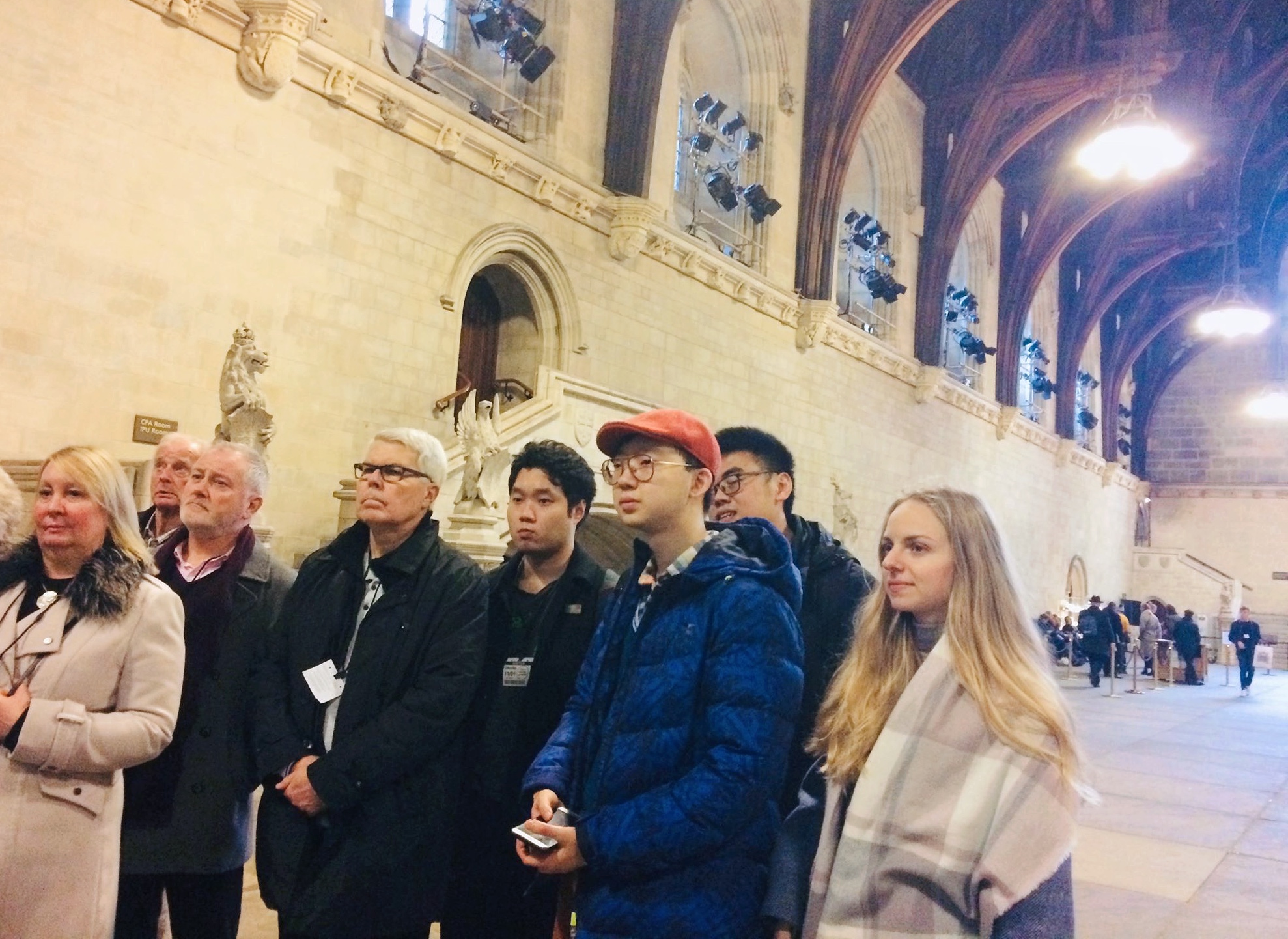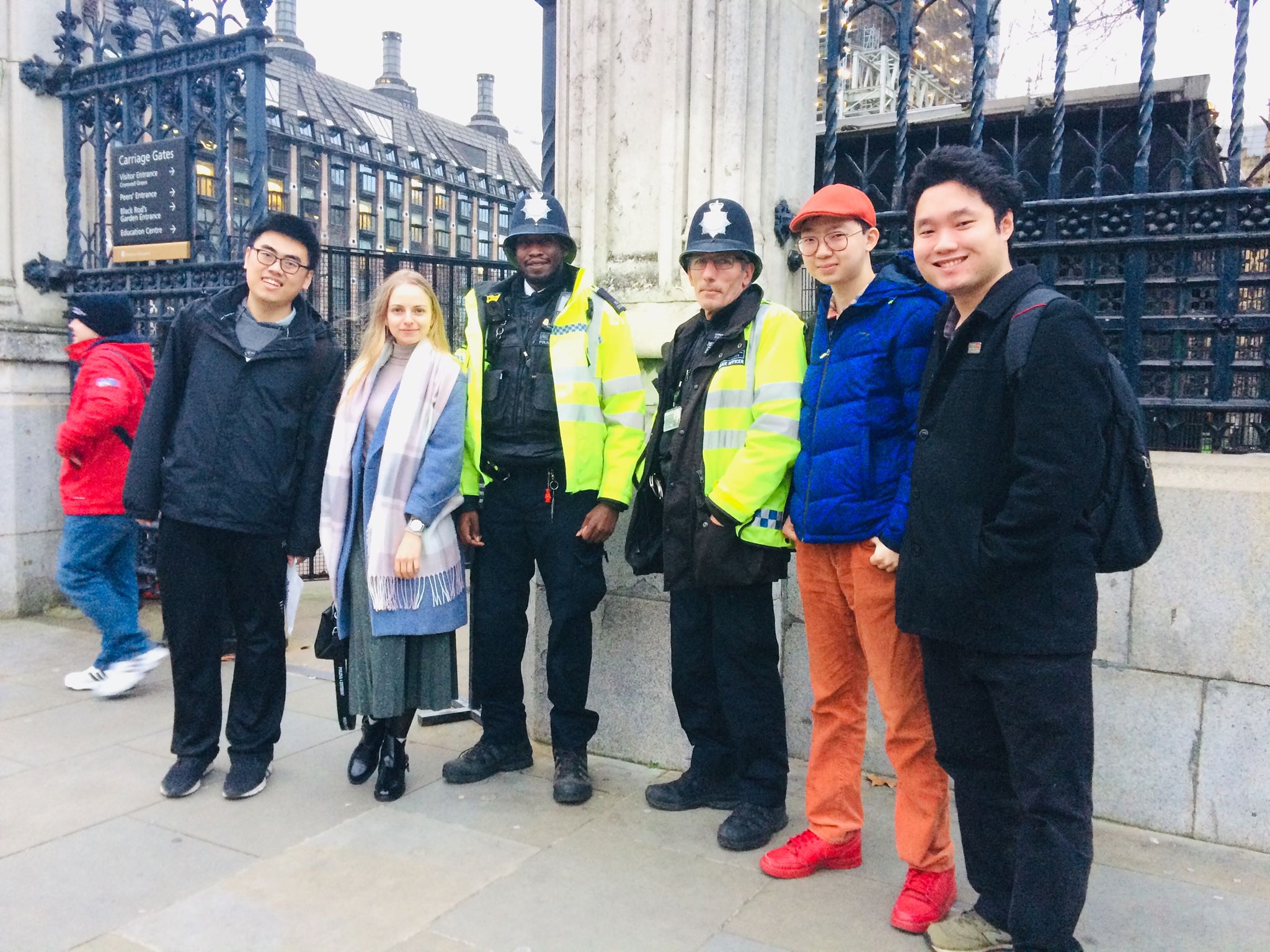A visit to the British Parliament represents a journey not only into the British political system, but also an enlightening leap into the British history. We get to learn about how the whole system was created, the symbolism of each step and how it reflects the British history. Our students were provided this unique opportunity to understand more about the country where they are having this academic experience.
Did you know that the Queen is not allowed to go to the House of Commons? And that at the Queen’s speech State Opening of Parliament is, actually, written by the Parliament? The students learned all this and a lot more about the British history and political system, from the visit to the British Parliament.
Students in the hall
The State Opening of Parliament represents the formal start of the parliamentary year. The Queen arrives at Sovereign's Entrance and proceeds to the luxurious Robing Room. Wearing the Imperial State Crown and the Robe of State, she leads the Royal Procession through the Royal Gallery, usually with around 600 guests, to the golden chamber of the House of Lords. The angels that are in the left and right side of her throne have the hands and faces in solid gold.
We also learned that when you can see the blue colour, on the floor or in the seats, it means that is the place where the Monarchy should be. The doors to the Commons chamber are shut in the Queen’s face: a practice dating back to the Civil War, symbolising the Commons' independence from the monarchy. Then, the House of Lords official, also known as the Black Rod, strikes the door three times before it is opened. Members of the House of Commons then follow the Black Rod and the Commons Speaker to the Lords chamber, standing at the opposite end to the Throne, to listen to the speech. Although it is delivered by the Queen, the speech is, actually, written by the government.
It is only when the Queen leaves that the new parliament session starts. The Queen is not allowed to go into the House of Commons Chamber and the reason why dates to the time of King Charles I, and the power struggle between the King and Parliament, which ended with Civil War and the King's execution. The Restoration of the monarchy, in 1660, marked the return of Charles II as king.
The UK Parliament has the power to pass laws for the country. It's formed of representatives from three parts: 650 MPs (Members of Parliament) in the House of Commons; the House of the Lords, with 750 Members chosen from civil society; and the Monarch. The Monarch signs their name to every Act of Parliament before it can become the law. And no monarch has refused Parliament's wishes for over 300 years.
The visit to the British parliament also took us to the “Division Lobby”, where the MPs should be in eight minutes, after the “division bell” is heard. When this bell rings, in or around the parliament, it is a signal that a division (a vote) is occurring and the members of the House of Commons have 8 minutes to get to their chosen division lobby, so they can vote for or against the resolution. The carpet, the curtains and the leather seats in this Division Lobby are all green. So, we immediately understood that no member of the monarchy is allowed to come in here.
Finally, we could get in the House of Commons, where “everything happens”. What is usually the first impression, and for our students that was no exception, is how much smaller it is, than what we thought.
Have you ever heard the expression “to do Lobbying?” Between the House of the Lords and the House of the Commons there is a big Lobby. And any British citizen can go to the Parliament and ask to speak to his MP. This person will be received, by the MP, at this big Lobby.
Students in front of the carriage gate with the police
On this group tour, the students were able to ask questions about the paintings, the families coat of arms, the symbolism of colours and all the stories behind the big events. Even the stories about the MP that could not get to the “Division Lobby” on time and could not vote. This was a very special occasion to be inside a beautiful historical place where the future of this country is decided.
By Anabela Santos
















